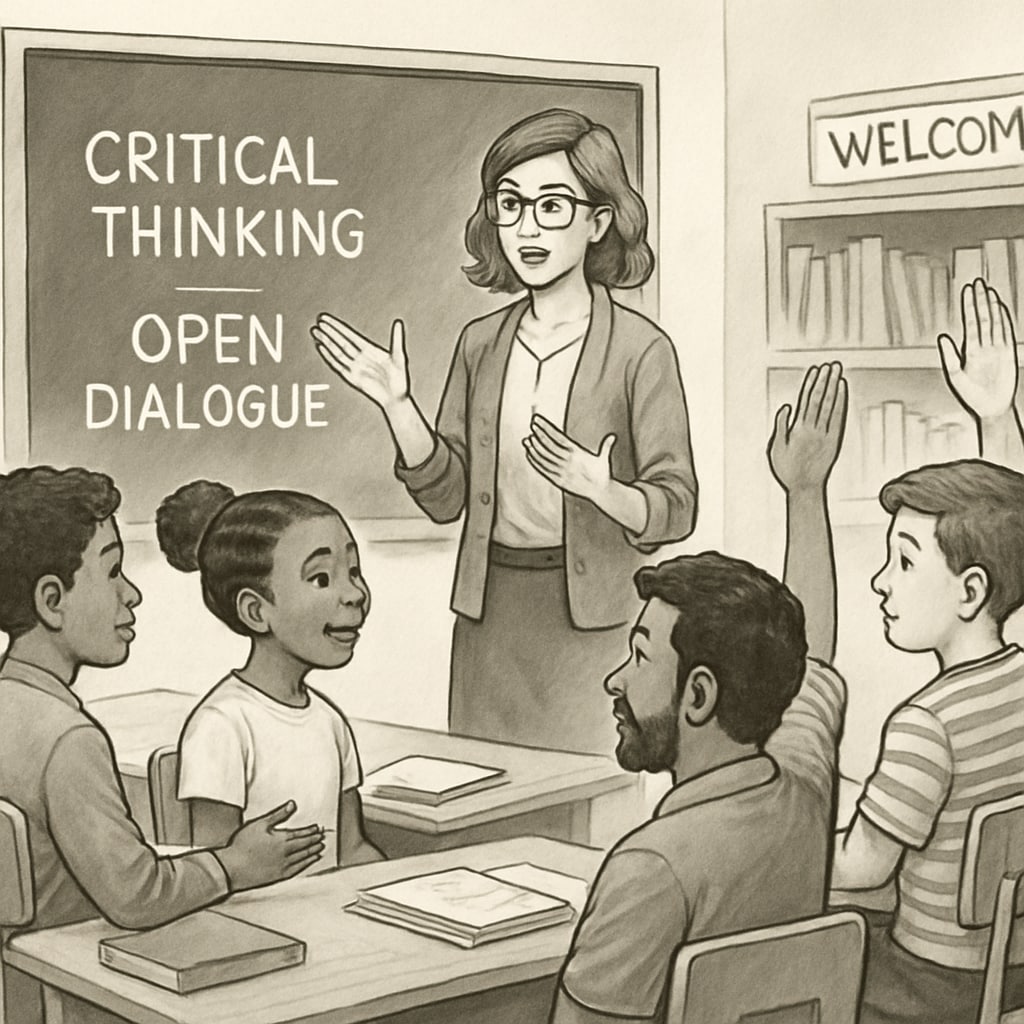Oklahoma’s recent policy requiring political inclination testing for out-of-state teacher applicants has ignited heated debates regarding education neutrality, political interference, and the fundamental purpose of teaching. The policy, introduced as part of a broader effort to ensure alignment with state values, raises critical questions about the boundaries between professional qualifications and personal ideology in the education system. While proponents argue that such measures protect educational integrity, critics warn of the dangers of politicizing the hiring process and alienating qualified educators. This article explores the motivations behind this policy, its potential effects on the educational landscape, and the broader implications for teachers and students alike.
Understanding the Political Inclination Testing Policy
The policy introduced in Oklahoma mandates that out-of-state teacher applicants undergo a screening process to assess their alignment with the state’s political and ideological values. Advocates of the policy suggest that it aims to ensure that educators conform to the cultural and social norms of the local community. However, critics argue that this approach effectively filters applicants based on their perceived political ideologies, rather than their professional competence or teaching abilities.
For example, the screening process reportedly includes questions about applicants’ stances on issues such as curriculum content, discussions of race and gender in the classroom, and their views on parental rights in education. This has led to concerns that the policy might deter highly qualified teachers who hold differing political viewpoints, exacerbating the teacher shortage already felt in many parts of the United States.

Implications for Teachers and the Education System
The introduction of political inclination testing has far-reaching implications. First and foremost, it may discourage talented educators from applying to teach in Oklahoma, especially if they perceive the hiring process as intrusive or biased. At a time when teacher shortages are impacting educational quality nationwide, policies that limit the pool of potential candidates could have serious consequences for students.
In addition, the policy risks creating an environment where teachers feel pressured to conform to the dominant political ideology, potentially stifling open dialogue and critical thinking in classrooms. Education experts warn that such practices could undermine the core mission of education: fostering free thought, creativity, and the ability to engage with diverse perspectives.
On a broader scale, this policy sets a concerning precedent for other states. If political inclination screening becomes widespread, it could lead to further polarization within the education system, with schools becoming battlegrounds for ideological disputes rather than places of learning and growth.

Balancing Educational Neutrality and Community Values
The debate over Oklahoma’s policy highlights the tension between maintaining educational neutrality and respecting the values of the local community. While it is reasonable for states to want educators who understand and respect their cultural context, policies that prioritize ideological conformity over professional expertise risk undermining the quality and inclusivity of education.
Education, ideally, should be a politically neutral space that encourages exploration, debate, and the pursuit of truth. However, when hiring decisions are influenced by political considerations, it becomes increasingly difficult to maintain this neutrality. Striking the right balance requires careful consideration of both the needs of the community and the fundamental principles of education.
Conclusion: A Call for Reflection
Oklahoma’s policy on political inclination testing for out-of-state teachers has sparked a critical conversation about the role of politics in education. While the policy aims to align educators with community values, its potential to discourage qualified applicants, stifle open dialogue, and politicize education cannot be ignored. As other states observe the implementation and outcomes of this policy, it is imperative to reflect on the broader implications for the education system and the societal values it upholds.
Ultimately, the focus should remain on fostering an education system that prioritizes inclusivity, critical thinking, and the professional expertise of teachers, free from undue political influence. Only by doing so can we truly prepare students to navigate an increasingly complex and diverse world.
Readability guidance: This article uses short paragraphs and subheadings to improve readability. Lists were avoided in favor of concise paragraphs. Transition words such as “however,” “therefore,” and “for example” were used to enhance flow, and passive voice usage was kept minimal.


